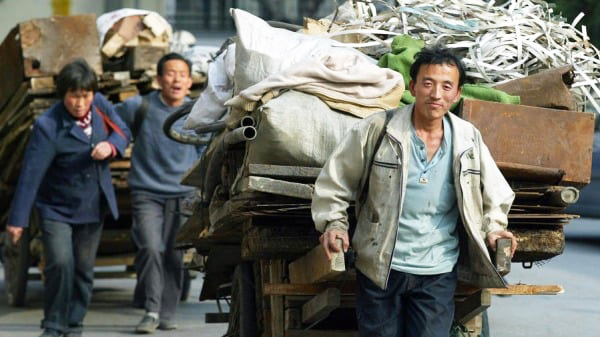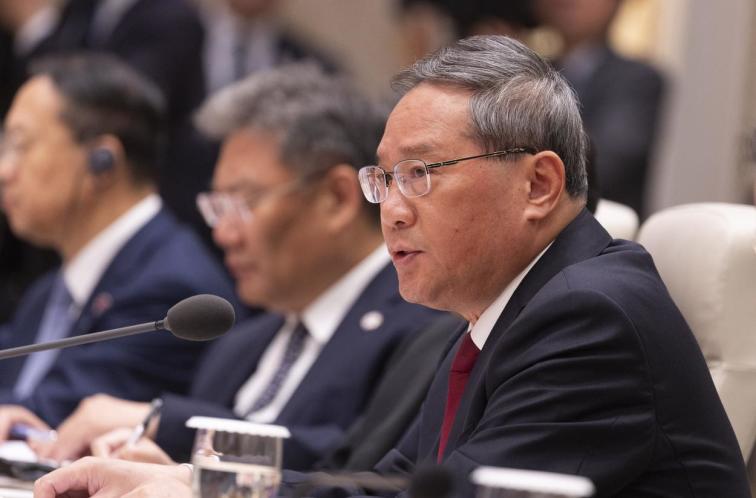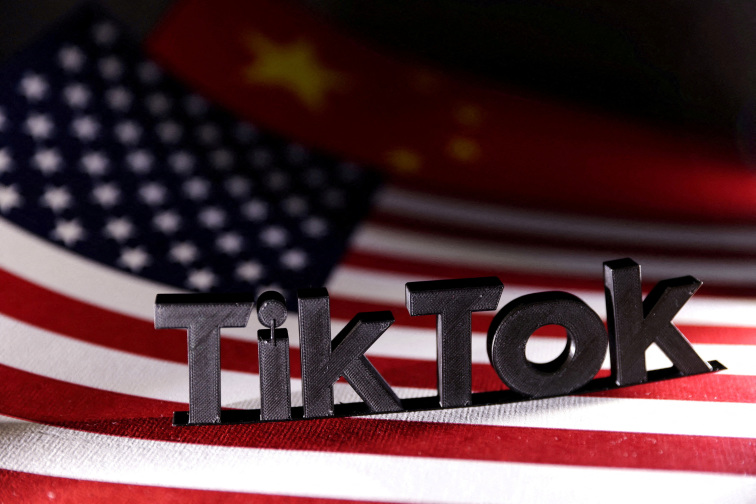Migrant workers around Shanghai are working while pulling flatbed garbage carts.
[People News] Wherever CCP enterprises expand, oppression follows: a global reach of exploitation
The overseas expansion of CCP enterprises has become a global disaster. Under the guise of “development cooperation,” these enterprises export their oppressive model worldwide, from Africa to South America, Southeast Asia, and even industrial centers in developed nations. This exploitation affects not only local workers but also Chinese workers abroad, who endure even harsher conditions than in China. Wherever CCP enterprises go, they create a modern-day inferno of slavery.
Africa: The CCP’s Modern Colony
In Africa, CCP enterprises act as 21st-century colonizers. Workers are forced to labor in extreme heat under unsafe conditions, earning wages too low to sustain a basic livelihood, let alone receive labor protections. Some workers report losing basic personal freedoms, facing physical punishments, and verbal abuse from Chinese managers on mines and construction sites. Meanwhile, these companies wreak havoc on local ecosystems, deforesting areas and polluting water sources, thereby robbing local communities of their survival foundations.
Brazil: Resource Plundering and Labor Exploitation
In South America, particularly in Brazil, CCP enterprises escalate their exploitation tactics. On mines and agricultural plantations, both Chinese and local workers are forced to work overtime for wages below the minimum standard. Some Chinese workers sent to Brazil discover their passports are confiscated, leaving them unable to return home. These tactics extend the oppression seen in China overseas, turning Chinese workers abroad into a prime example of “transnational slave labor.”
Singapore: Exploitation Knows No Borders
Even in Singapore, a developed country with a robust legal system, CCP enterprises exploit workers with impunity. Foreign laborers endure long hours on construction sites while facing wage deductions and forced overtime. Chinese workers, in particular, are coerced into signing unfair contracts and endure grueling work conditions. Many report that their treatment in Singapore surpasses even China’s infamous “996” work culture, turning them into sacrifices for the machinery of transnational capitalism.
The Plight of Chinese Workers: Double Oppression as “Exported Slaves”
CCP enterprises not only oppress local laborers but impose even harsher conditions on the Chinese workers they send abroad. These workers, hoping to improve their lives through overseas employment, find themselves exploited as cheap tools:
Passport Confiscation: Workers lose their freedom and are entirely at the mercy of company management.
Wage Arrears: Companies delay wages for extended periods, leaving workers struggling to survive.
Violent Suppression: Workers who resist or protest are threatened with violence, sometimes in collaboration with local authorities to suppress dissent.
The plight of these Chinese workers abroad exemplifies how CCP enterprises upgrade domestic exploitation into a “globalized slavery” model.
The Essence of CCP Enterprises: A Global Machine of Plunder and Oppression
The actions of CCP enterprises are not isolated incidents but part of the CCP’s global expansion strategy. These enterprises aim not for cooperation but for plunder; not for mutual benefit but for domination. By exchanging capital for resources, they turn developing countries into reservoirs of cheap labor and sacrifice their own workers to transnational exploitation. This model not only destroys the dignity of global workers but also poses a severe threat to international fairness and justice.
The Urgency of Resisting the CCP’s Global Enslavement
In response to the oppressive expansion of CCP enterprises, the international community must act:
- Expose and Sanction: Publicly reveal the exploitative practices of CCP enterprises and impose economic and legal sanctions against them.
- Protect Workers’ Rights: Collaborate internationally to provide legal aid for affected workers and ensure their fundamental rights are protected.
- Reject CCP Capital: Assist developing countries in reducing dependency on CCP enterprises and finding fairer international partners.
Conclusion: Ending Oppression Requires Global Awakening
Wherever CCP enterprises go, oppression takes root. This model of plunder and exploitation must be collectively resisted by the international community. Whether in Africa, South America, or among Chinese workers themselves, there must be a collective awakening and resistance against this global machinery of enslavement. Only then can the CCP’s grip on the world be broken, restoring dignity and rights to laborers worldwide. △
(Original article published by People News)










News magazine bootstrap themes!
I like this themes, fast loading and look profesional
Thank you Carlos!
You're welcome!
Please support me with give positive rating!
Yes Sure!